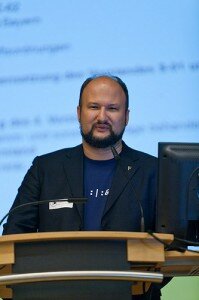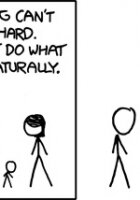Interview with Gregory Engels of Pirate Parties International
An interview with Gregory Engels, board member of the Pirate Parties International, who addresses issues as diverse as copyright, pharmaceutical companies and terrorism.
Georg Hoehne interviews Gregory Engels, who is a board member of the Pirate Parties International (PPI) and is the international coordinator of the Pirate Party Germany. He talks about the ideological movement of Pirate Parties and why free speech and freedom of information are key for democratisation in the twenty-first century.
What is the PPI all about?
It is an international umbrella organisation for the 22 pirate parties in existence all over the world. However, there are over 50 pirate parties in the world with the recent addition of the pirate party Morocco. Approximately, every two weeks there is another pirate party founded somewhere in the world. The PPIs is there to establish the communication between the parties and supports their organisation on the international level. We are in a broader sense a service provider for the other Pirate Parties.
Where does your funding come from?
Well to speak the truth, we don’t have any funding. We have collected some private donations. I’m not the treasurer, but I think the budget right now is around €600. All the work which is been done is done by volunteers, including the work of the board members. We registered in the beginning of this year we did not had the time set up a solid long term financial structure.
Does the PPI have an ideology?
We do not have our own ideology or constitution but rather we support the pirate parties and their members according to their needs. That means that we don’t go out and give political speeches. Currently, a lot of our members want to support Wikileaks so we help in the coordination of this project.
What do you mean by that?
We provide organisational support, teaching people how to set up a Wikileaks mirror, for example. So if people want to host the Wikileaks website they can get in contact with us and we help them to do so.
But that means that there must be some ideology behind the PPI because your projects strongly support the freedom of speech and information.
Yes, this is the ideology of the whole movement. It has not been written down yet in a Pirates’ Manifesto but I think that all pirate parties in the world would agree that there is a need for reform of the copyright system globally and the reform of the intellectual property system. However, ‘intellectual property’ is not really a term used by Pirates; it’s a propaganda term. We all want to work towards a global system that allows the free exchange of information and ideas for educational purposes. The parties are in favour of freedom of speech and civil liberties but there are local differences in how local parties perceive this system.
When you say that you try to reform the intellectual property system, does that not also imply you are undermining the intellectual wealth of corporations? For example, pharmaceutical company’s providers are dependent on copyrights and patents.
You make the same mistake that a lot of copyright activists make, by saying that this issue is exactly the same. What we really push for is the release of patents that enable human development. These issues are not the same at all. From a pharmaceutical point of view, a lot of their research is available for the public after a long time, but we have to look into [heavily reducing] patent protection time-frames. There is a moral obligation for the western world to provide some of these pharmaceutical patents to the underdeveloped world who would not be able to profit from this research otherwise. There is a wide agreement that something has to be done to get a mutually beneficial system.
This sounds a bit like you are in favour of the distribution of copyrighted material through the internet. Dosn’t the ideology of the pirate party in combination with your critique lead to a moral justification of illegal downloads?
No, I would not support that chain of thought. We are just against the current system. Each pirate party works to improve the system in their respected countries. None of the parties would support illegal downloading but all of these parties support downloading. The legal ramifications are considered differently in each country, so some legislation might not need of changing while others do.
What do you think is the ‘most free’ country in regard to intellectual property rights/freedom of speech – or would you say it’s a global system where national laws don’t really play a big role?
Yes, I would agree with the second statement. Personally, I believe that this is an international issue. This is the reason why I work for the PPI, because I think that in this interconnected, global and open world there is more freedom than, for instance, ten years ago. I was born in Soviet Russia so I know what I’m talking about. But in the realm of the freedom of ideas and thought, there is still a lot of space for improvement. So yes, the interconnectedness of the system should be addressed on the international level.
However, national copyright laws are different from country to country, and basically incompatible. Content advocates try to push their own point of view all over the world. For example, the Acta Agreement was negotiated by mostly western countries, with few non-developed nations. The trade agreement which sets the scale on the international level is imposed on China and Russia: even though they were not part of the negotiations, if it gets ratified internationally. Taking aside the fact that this was all done in secrecy, the countries that led the negotiations were countries like Tunisia, without China and Russia. So that illustrates how wrong the system is.
We stand here in Frankfurt, Germany surrounded by Santa Clauses, in a demonstration that tries to improve tolerance towards bearded foreigners. Can you tell me a bit about the context and the purpose of this demonstration by the Pirate Party Germany?
In Germany right now we have a phenomenon that is not new to Germany, called the ‘terror phobia’. This was caused by our Minister for the Interior, Mr Demisiere, saying that there might be a terrorist attack in December. That is why this hysteria in Germany is going on. So if you see a suspicious gathering of bearded strangers who speak in strange tongues then you have to report this. This is really stupid. Sorry for being this straight forward. We have a demonstration right now because we show that if people were beards that they are not automatically terrorists. So, not every bearded foreigner is a terrorist.
How do you see the PPI’s and the pirate movement’s development in the next five to ten years?
One major development I would like to see is that the ‘pirates’ will move into parliaments all over the world. Not just in Europe but South America and Asia; maybe not in the US. I want to see us be part of a settled political landscape. The Pirate parties are not just focused on certain issues but have the potential to fundamentally change politics. I think we can make a major contribution of improving and supporting democracy worldwide.












